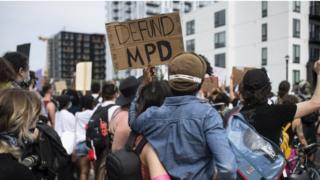 Image copyright Getty Images
Image copyright Getty Images
A majority of Minneapolis City Council has pledged to dismantle the local police department, a significant move amid nationwide protests sparked by George Floyd's death last month.
Nine of the 13 councillors said a "new model of public safety" would be created in a city where law enforcement has been accused of racism.
Mayor Jacob Frey earlier opposed the move, drawing boos from the crowds.
Anti-racism rallies have been held after Floyd's death in police custody.
However, security measures across the country were lifted on Sunday as unrest started to ease.
Mr Floyd's funeral is scheduled for Tuesday in Houston, his home city before he moved to Minneapolis. The protests started after video emerged showing the 46-year-old African American pinned to the floor, with a white police officer kneeling on his neck for almost nine minutes.
Officer Derek Chauvin has been dismissed and charged with murder. Three other officers who were at the scene have also been sacked and charged with aiding and abetting.
What did Minneapolis City Council members say?
The nine councillors read a statement to hundreds of protesters on Sunday.
"We are here because here in Minneapolis and in cities across the United States it is clear that our existing system of policing and public safety is not keeping our communities safe," City Council President Lisa Bender was quoted as saying.
"Our efforts at incremental reform have failed. Period."
Ms Bender said details of the overhaul plan needed to be discussed further, adding that she would try to shift police funding towards community based strategies.
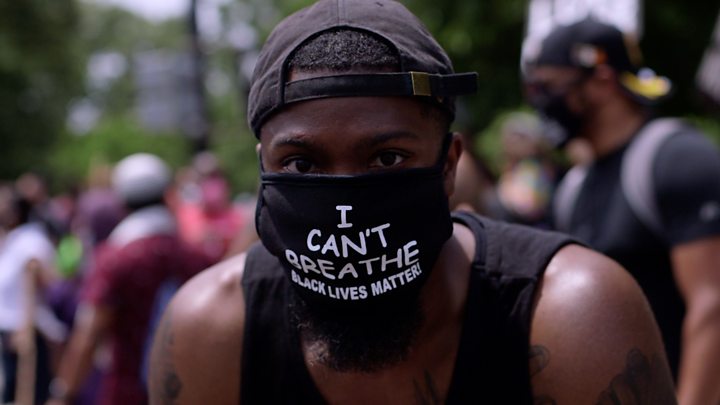
Meanwhile, councillor Alondra Cano tweeted that "a veto-proof majority" in the council had agreed that the city police department "is not reformable and that we're going to end the current policing system".
The process of setting up a new community-led body is likely to take several months, BBC North America correspondent Peter Bowes says.
The reform plan in Minneapolis also sets up what is likely to be a long and complicated debate over new ways of policing across the US.
More on George Floyd's death
- VIEWPOINT: Tipping point for racially divided nation
- WATCH: 'This is why we are protesting'
- TIMELINE: Recent black deaths at hands of police
- BACKGROUND: Five pieces of context to understand the protests
- CRIME AND JUSTICE: How are African Americans treated?
What's happening elsewhere?
New York City Mayor Bill de Blasio had already said he would divert money from the city's police department to social services.
"Defund the police" was a rallying cry during the latest street protests, that occasionally spilled into violence and looting.
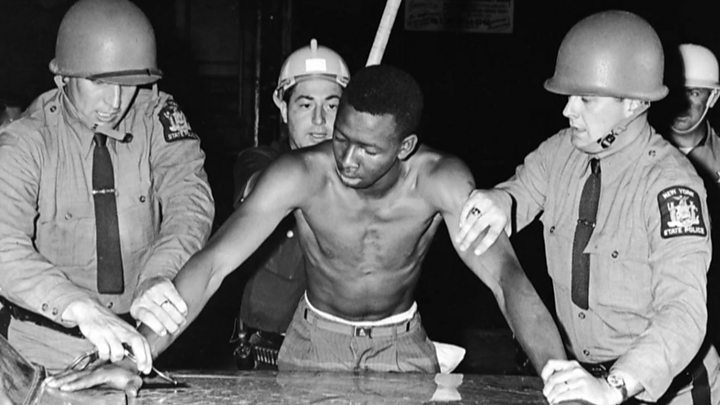
"Defunding" advocates have for years been condemning what they describe as the aggressive militarised policing in the US.
They argue that police departments' budgets should be slashed and funds diverted to social programmes to avoid unnecessary confrontation and heal the racial divide.
US protests timeline
George Floyd dies after police arrest
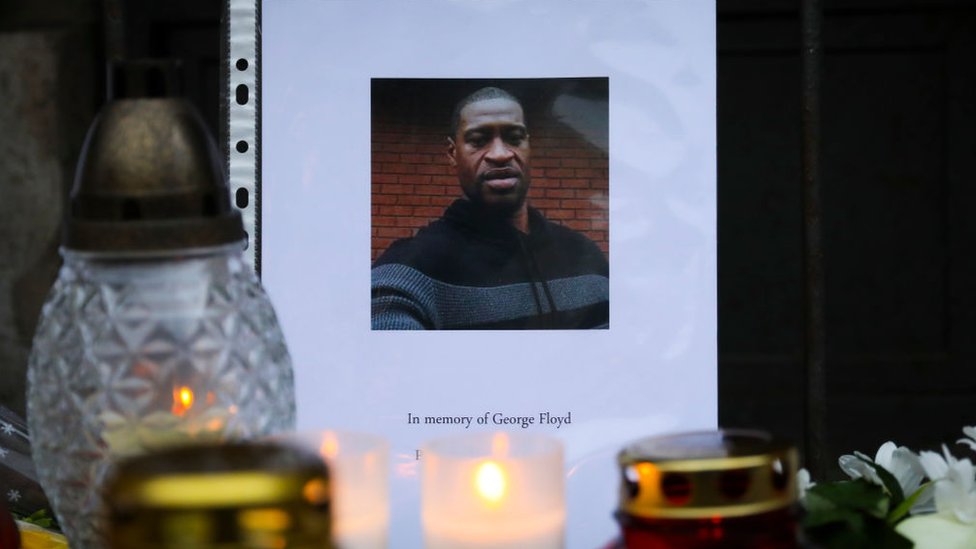
George Floyd dies after being arrested by police outside a shop in Minneapolis, Minnesota. Footage shows a white officer, Derek Chauvin, kneeling on Mr Floyd’s neck for several minutes while he is pinned to the floor. Mr Floyd is heard repeatedly saying "I can’t breathe". He is pronounced dead later in hospital.
Protests begin
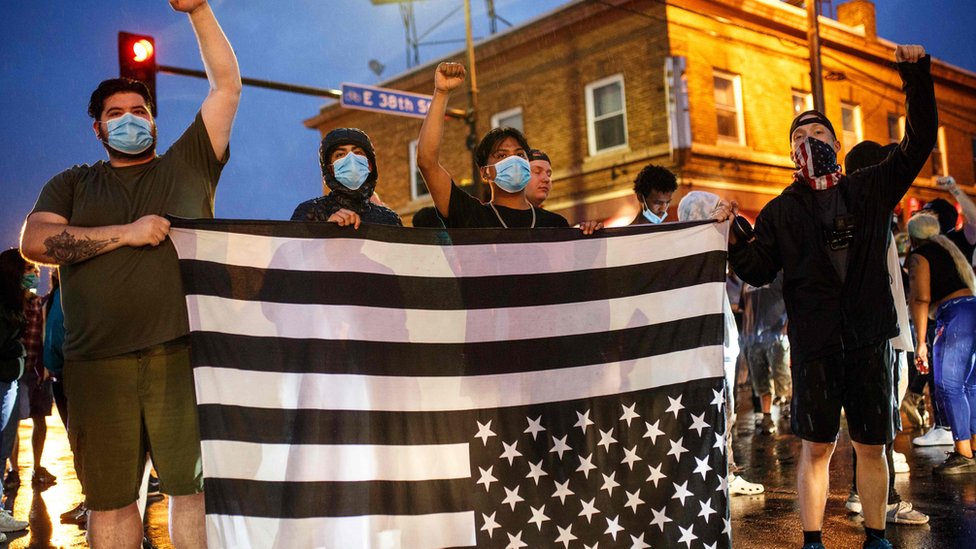
Four officers involved in the arrest of George Floyd are fired. Protests begin as the video of the arrest is shared widely on social media. Hundreds of demonstrators take to the streets of Minneapolis and vandalise police cars and the police station with graffiti.
Protests spread
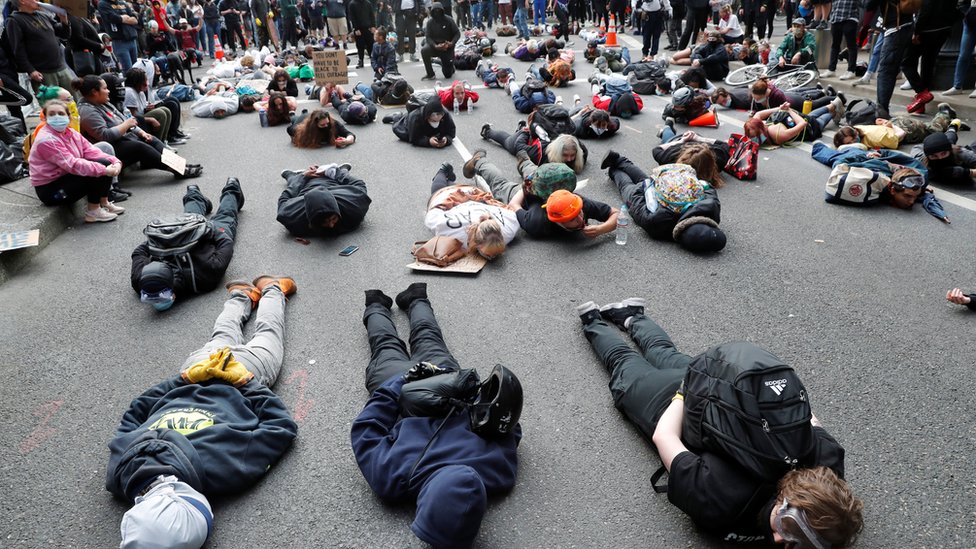
Protests spread to other cities including Memphis and Los Angeles. In some places, like Portland, Oregon, protesters lie in the road, chanting "I can’t breathe". Demonstrators again gather around the police station in Minneapolis where the officers involved in George Floyd’s arrest were based and set fire to it. The building is evacuated and police retreat.
Trump tweets
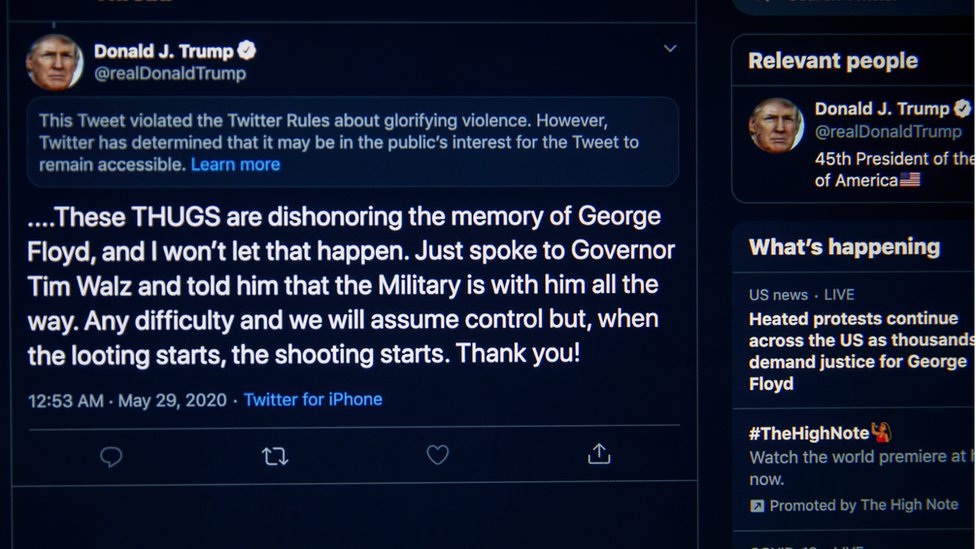
President Trump blames the violence on a lack of leadership in Minneapolis and threatens to send in the National Guard in a tweet. He follows it up in a second tweet with a warning "when the looting starts, the shooting starts". The second tweet is hidden by Twitter for "glorifying violence".
CNN reporter arrested
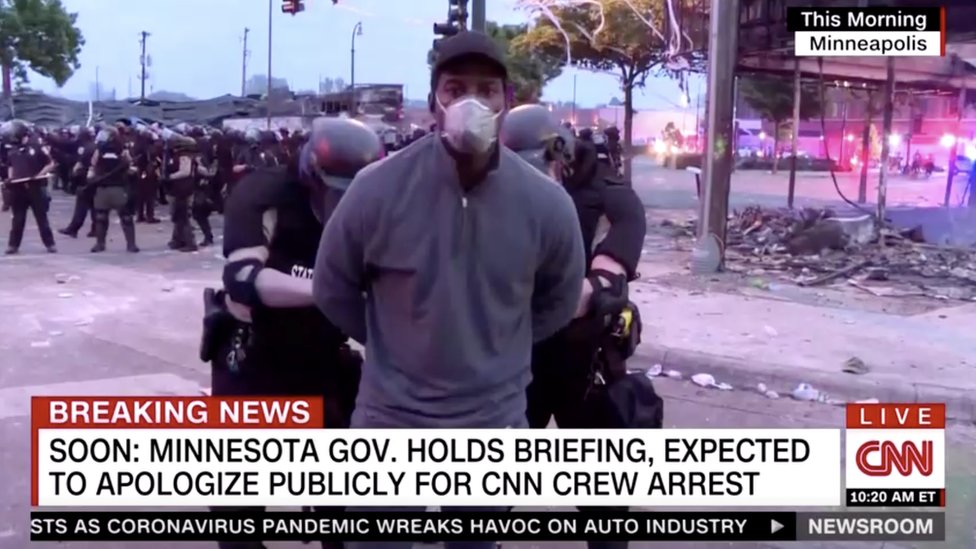
A CNN reporter, Omar Jimenez, is arrested while covering the Minneapolis protest. Mr Jimenez was reporting live when police officers handcuffed him. A few minutes later several of his colleagues are also arrested. They are all later released once they are confirmed to be members of the media.
Derek Chauvin charged with murder
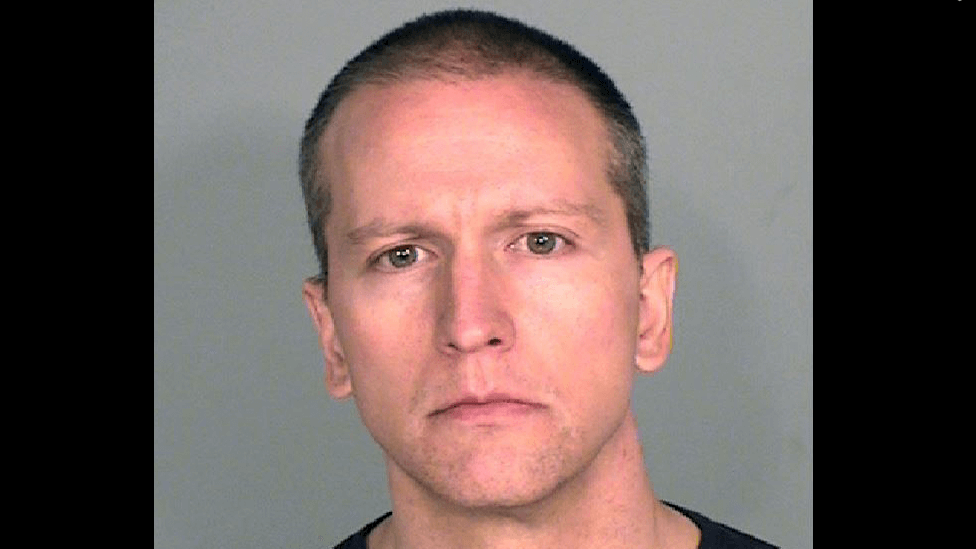
Former Minneapolis police officer Derek Chauvin, 44, is charged with murder and manslaughter. The charges carry a combined maximum 35-year sentence.
Sixth night of protests
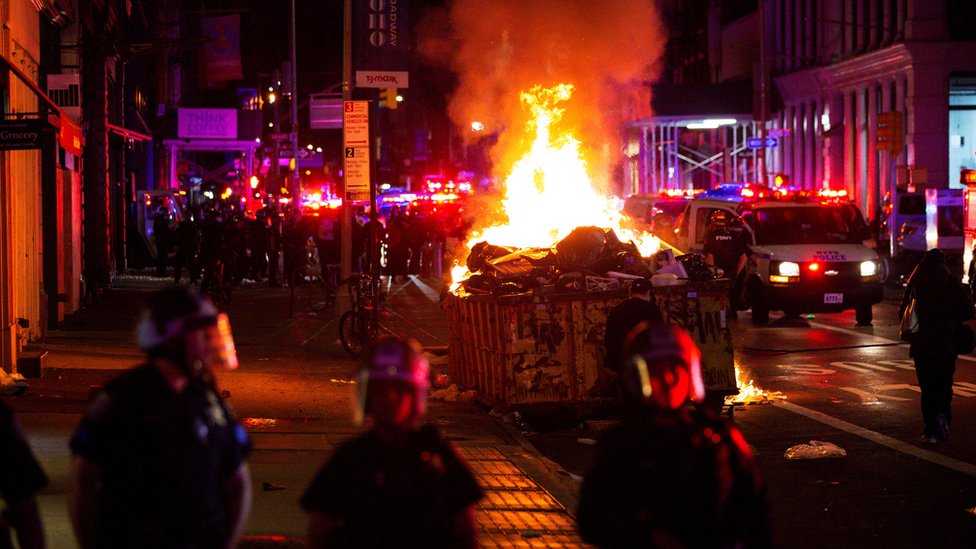
Violence spreads across the US on the sixth night of protests. A total of at least five people are reported killed in protests from Indianapolis to Chicago. More than 75 cities have seen protests. At least 4,400 people have been arrested. Curfews are imposed across the US to try to stem the unrest.
Trump threatens military response
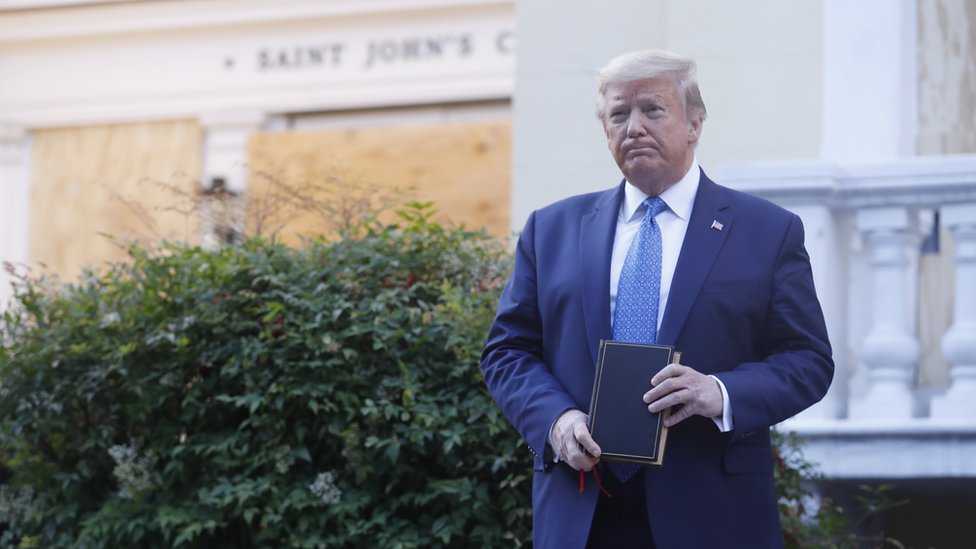
President Trump threatens to send in the military to quell growing civil unrest. He says if cities and states fail to control the protests and "defend their residents" he will deploy the army and "quickly solve the problem for them". Mr Trump poses in front of a damaged church shortly after police used tear gas to disperse peaceful protesters nearby.
Eighth night of protests
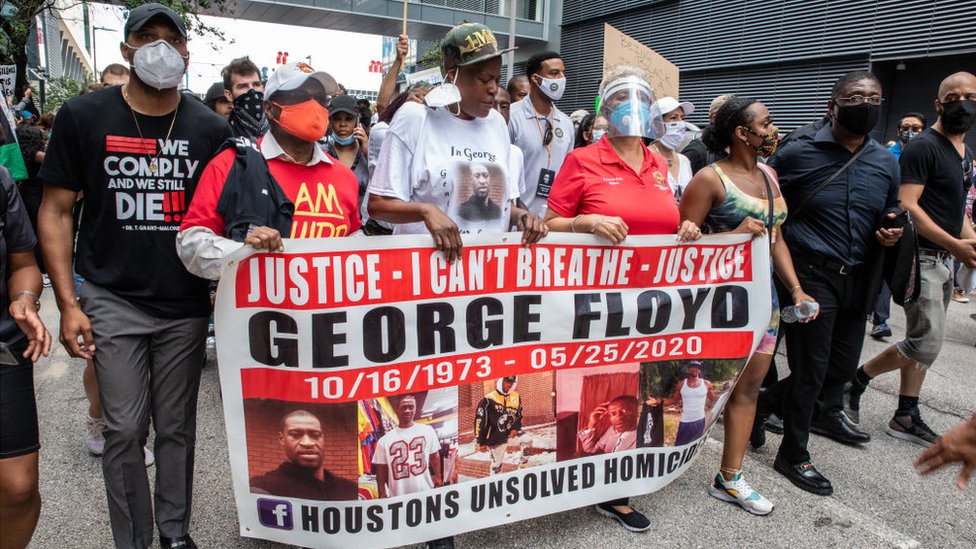
Tens of thousands of protesters again take to the streets. One of the biggest protests is in George Floyd’s hometown of Houston, Texas. Many defy curfews in several cities, but the demonstrations are largely peaceful.
Memorial service for George Floyd
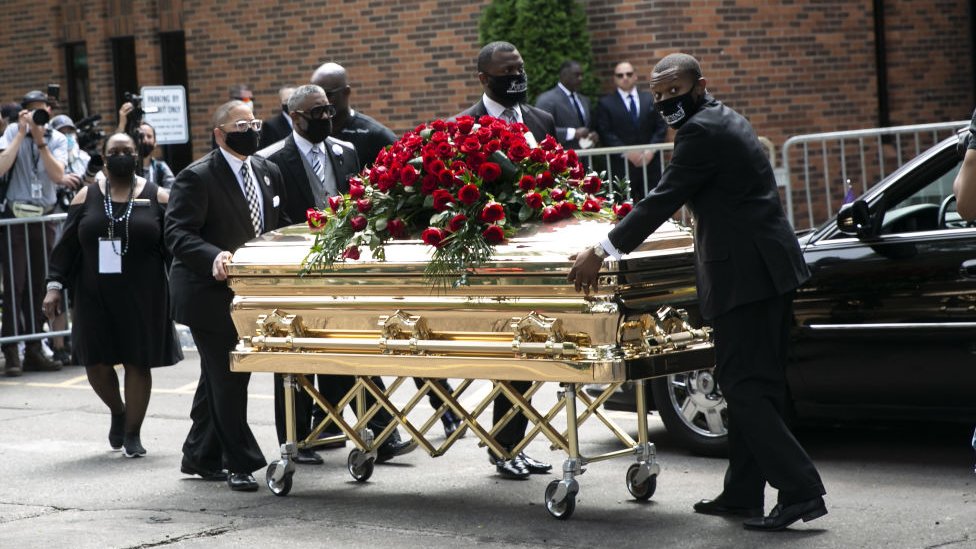
A memorial service for George Floyd is held in Minneapolis. Those gathered in tribute stand in silence for eight minutes, 46 seconds, the amount of time Mr Floyd is alleged to have been on the ground under arrest. Hundreds attended the service, which heard a eulogy from civil rights activist Rev Al Sharpton.
from Via PakapNews